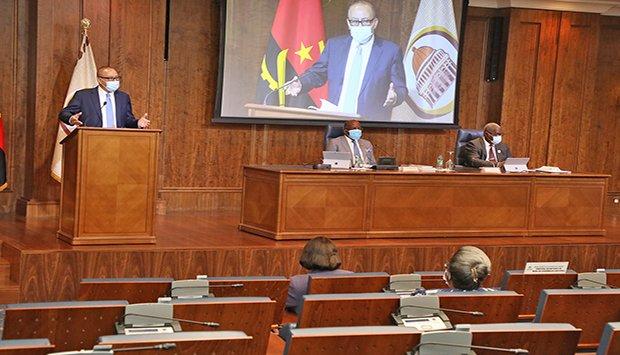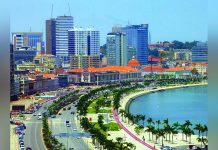Africa-Press – Angola. The possibility that judges of the Common Courts without a degree in Law will soon cease to exercise functions in the country and the introduction into the Angolan legal system of the figure of Itinerant Judge constituted yesterday, in Luanda, the main points of discussion, in the specialty, of the Draft Organic Law on the Organization and Functioning of Courts of Common Jurisdiction.
Some parliamentarians assigned to the first and fifth working committees argued that the introduction of the figure of an itinerant judge was unnecessary, while others requested greater consideration on the matter, at least until the final report was approved. Deputy João Pinto, from the MPLA, is one of those who defended consideration on the matter, stressing that until the final report is prepared, one must be sure that the figure of an itinerant judge is really necessary.
“It is an anomalous figure, which does not eliminate the vice. Also because the resolution of disputes in our Constitution is also extra-judicial. The Constitution of the Republic prohibits the creation of courts with exclusive competence to judge certain offences”, recalled the parliamentarian. The non-integrated deputy David Mendes also disapproved of the role of itinerant judge. For him, the redistribution of processes by lottery would be ideal. “If there are too many cases, these should be redistributed to other judges”, he said, referring that this figure can promote private interests and corruption.
Tomás da Silva, also MPLA deputy, recalled that the issue must be implemented on an exceptional basis, whose process is conducted by the Superior Council of the Judiciary, a body that has the task of assigning a certain number of itinerant judges, for a set period of time. , for the reduction of pending cases.
The president of the session, Reis Júnior, advised the parliamentarians to continue to reason about the issue related to the itinerant judge, without excluding some advanced opinions, such as the reflection of deputy António Paulo (MPLA), who suggests increasing the number of judges and the secretariat staff, as well as financial resources to resolve the problem of excessive court cases.
The question concerning the itinerant judge is expressed in article 20 of the Organic Law Proposal on the Organization and Functioning of the Courts of the Common Jurisdiction. The Executive’s legislative initiative diploma has been under debate since Tuesday, in the National Assembly’s specialist committees.
This article establishes that whenever a judge is in charge of a number of cases greater than 50% of the foreseen one and the circumstances do not justify the movement or the recruitment of new judges under the terms established in the Organic Law of the Superior Council of the Judiciary, the Council deploys a specified number of itinerant judges for the required period of time.
Regarding the possibility that judges of ordinary courts without a law degree will soon cease to exercise functions in the country, MPLA deputy António Paulo asked for greater prudence in taking this measure, recalling that from a career point of view they have vested right. “To say that ordinary court judges without a law degree no longer serve as such must be very well thought through,” he declared.
The Secretary of State for Justice and Human Rights, Orlando Fernandes, and Deputy David Mendes suggested that the affected judges be converted to advisors or consultants.
For More News And Analysis About Angola Follow Africa-Press






